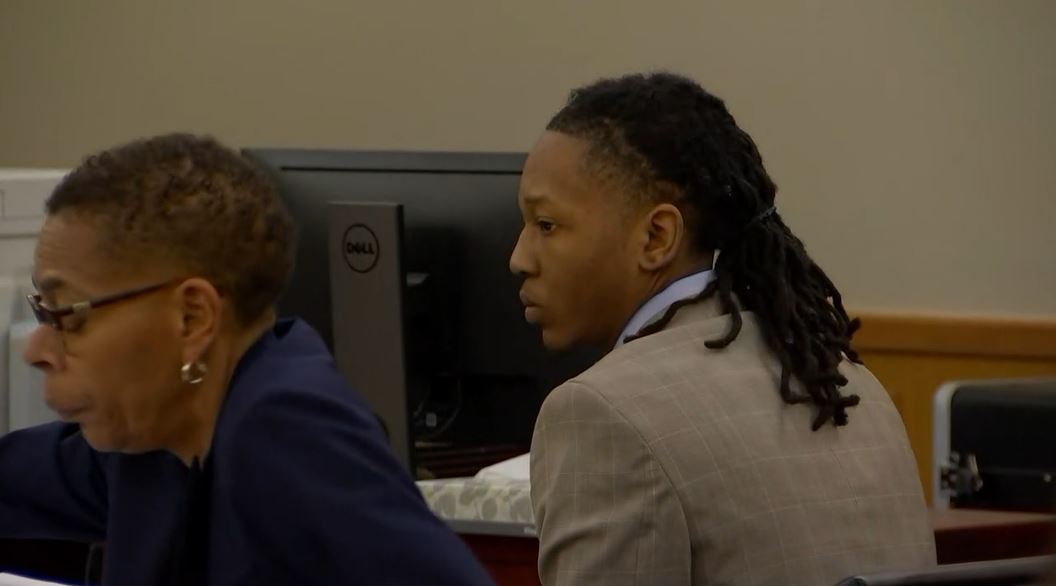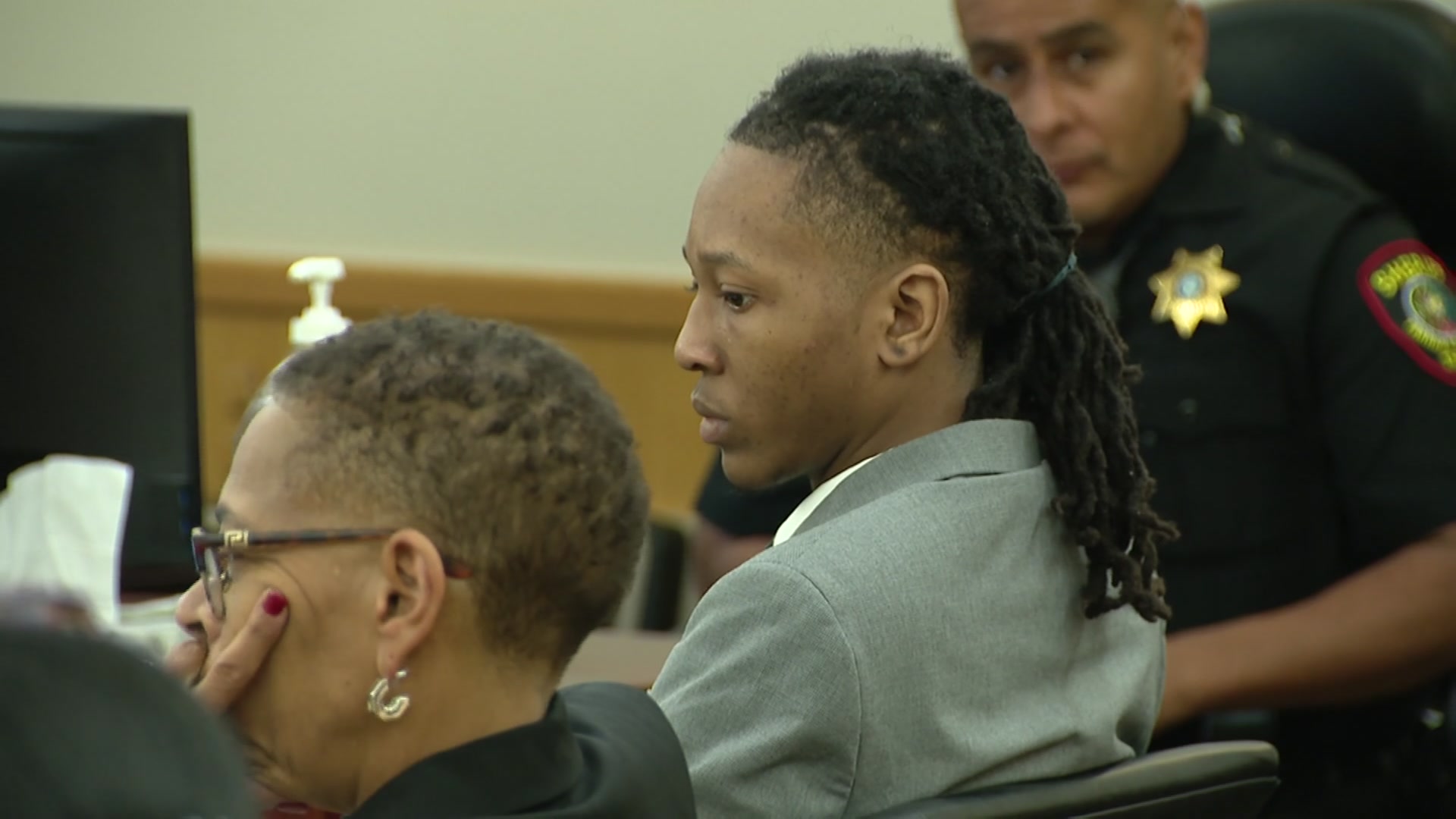What to Know
- Timothy Simpkins is facing three counts of attempted capital murder.
- Simpkins entered a "not guilty" plea on day one of the trial.
- During day three the defense rested without calling new witnesses. Court was in recess most of the afternoon working on jury instruction and for a procedural discussion.
The trial of Timothy George Simpkins, a man accused of shooting three people at Timberview High School in Arlington in 2021, resumed Wednesday morning in Fort Worth.
The jury is expected to begin deliberations on Thursday after closing arguments in the morning. A major development that came out of the third day of the trial is that the jury will not be allowed to consider self-defense as a reason why Simpkins pulled the trigger.
Simpkins, who was 18 at the time, is facing multiple charges of attempted capital murder, aggravated assault with a deadly weapon and unlawful carrying of a weapon in a prohibited place after police said he pulled out a gun during a fight in a classroom and shot three people.
Get DFW local news, weather forecasts and entertainment stories to your inbox. Sign up for NBC DFW newsletters.
On Monday, the prosecution called first responders and Timberview teachers to the stand. They also showed police body camera video of the emergency response. On Tuesday, victim testimony, security-camera footage of the shooting and ballistics-expert analysis were the focus of the second day of the trial.
Prosecutors rested their case late Tuesday afternoon and the defense, who said Simpkins fired in self-defense, rested Wednesday morning after only calling one witness to the stand the day before. Simpkins did not take the stand in his own defense.
The court was in recess most of the afternoon on Wednesday while the judge worked on instructions for the jury. The 'Charge of the Court' according to the state, includes a series of questions the jury must answer considering evidence from the trial.
Judge Ryan Hill said Wednesday afternoon that the jury would not be allowed to consider self-defense as a justification for the shooting. Simpkins' attorneys said that the decision would cause "egregious harm" to their client.
The defense objected multiple times to the judge not allowing self-defense, which was the center of their case.
"It looks like we’re being denied an instruction for self-defense which there’s more than enough evidence," said Marquetta Clayton, Simpkins' attorney. "We only need to present a scintilla amount of evidence to get the charge."
The shooting started after the victim, Zacchaeus 'Zac' Selby, walked into the classroom and started punching Simpkins and throwing him around.
Other students testified in court that the fight became 'serious' when Selby began stomping on Simpkins's head. Coaches helped break up the fight, but seconds later, Simpkins is accused of pulling out a gun and shooting. Selby was hit, so was a teacher and another student was grazed by a bullet.
”Tim could have feared for his life, in the moments that led up to the shooting to occur," continued Clayton to the judge in her objection. During this time the jury was not in the room for the technicalities.
"We would object to leaving out the claim of self-defense although you can put there’s no presumption of reasonableness here however you want to state that in there, but to leave it out altogether violates his right to due process, to course of law under state and federal law, his right to a fair trial, his right to effective assistance of counsel, as his counsel can’t even put on a defense, the only defense that he could avail himself."
Clayton went on to question the decision and said, "So the court is essentially directing the verdict as it relates to just the claim of self-defense and directing the verdict pertaining to facts that were presented in this case and removing that decision from the jury?”
Judge Hill responded by saying, "I'm making no findings of guilt, I’m not directing the verdict at all, I’m simply denying your request for self-defense under the law in the facts of this case.”
The defense then asked for a detailed explanation and references to other laws, to which the judge replied the defense could make a request after the trial.
Closing arguments are expected to begin at 8:30 a.m. in Fort Worth at the Tim Curry Justice Center on Thursday and jury deliberations will follow.



